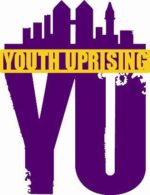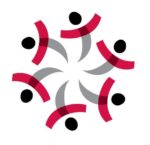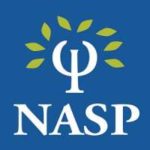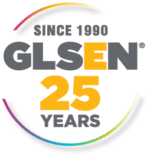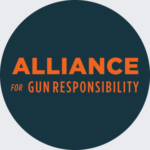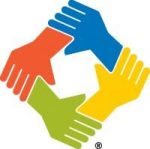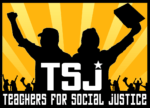Social Justice
YU LEAD (Leadership Excellence and Development) is a one-year leadership program that prepares a team of YU members who have overcome significant challenges to become community leaders by turning their passion for community advocacy into a career. By combining intensive leadership trainings and community enhancing group projects, YU LEAD prepares youth to be change agents, while ensuring that they are fully prepared for college or full-time work.
YU LEAD represents the youth perspectives in program development and facilitation, opportunities to organize youth events, and community engagement strategies. Participants also receive extensive training to carry the voice of youth in public policy and planning processes.
We at YouthPower believe that young people are at the heart of solutions to the world’s greatest challenges. That’s why we’re dedicated to strengthening systems in communities to achieve sustainable outcomes in health, education, and political and economic empowerment. By helping young people pursue their aspirations, we empower them to contribute to, and benefit from, the creation of more peaceful and prosperous communities.
Promoting positive youth development (PYD)
YouthPower promotes a shared understanding of positive youth development (PYD) whereby young people are empowered to reach their full potential. PYD transitions away from problem-focused responses to youth crises, to proactively building skills, fostering healthy relationships, transforming systems, and making youth an active partner in development efforts.
Advancing youth development
YouthPower improves the ability of youth-led and youth-serving institutions to design, implement, and assess the programs and policies that impact young people. Using lessons from our own research and knowledge sharing, we support the scale-up of sustainable youth programs, within and across multiple sectors. We do this to equip young people to actively engage in the development of their communities.
Creating a learning network
YouthPower’s Learning Network connects youth-serving initiatives, community-based organizations, international donors, academics, and government entities engaged in improving the knowledge, skills, practices, and partnerships around positive youth development. Together we are united in our aim to support the transition of young people into healthy, productive adults.
Providing evidence, evaluation, and technical guidance
YouthPower conducts research, evaluates innovative youth programs, and disseminates information to expand the knowledge base on what does – and does not – work in youth development. By compiling and sharing resources that take an evidence-based approach, we provide practitioners and researchers with the necessary tools to continuously improve the effectiveness of youth development practices.
WAISN’s ICE reporting hotline as well as a text-message alert system. Hotline number: 1-844-724-3737 (1-844-RAID-REP) text “JOIN” to 253-201-2833
UTEC’s mission is to ignite and nurture the ambition of Lowell’s most disconnected young people to trade violence and poverty for social and economic success.
UTEC’s nationally recognized model begins with intensive street outreach and gang peacemaking, reaching out to the most disconnected youth by meeting them “where they’re at.” UTEC engages youth in workforce development and alternative education. Social justice and civic engagement are embedded in all programming, with special emphasis in our youth-led grassroots organizing, locally and statewide.
The Understanding LGBTQ+ Identity: A Toolkit for Educators Collection offers a series of digital media resources to help administrators, guidance counselors, and educators understand and effectively address the complex and difficult issues faced by LGBTQ students. The collection features short segments of video content from WNET’s groundbreaking LGBTQ series First Person, a digital series that delivers candid personal narratives illustrating larger conversations about gender, sexuality, social norms, and identity development. The video content is scaffolded by a suite of materials (informational text, conversation guides, discussion questions, and teaching tips) to facilitate their use in professional development settings. When used in tandem, the videos and accompanying educational resources will help promote understanding, awareness, and self-esteem.
In this article published by the National Association of School Psychologists, researchers discuss how trauma affects youth and how it affects their school functioning as well as how schools can use a trauma-informed approach.
The leading national education organization focused on ensuring safe schools for all students. Established in 1990, GLSEN envisions a world in which every child learns to respect and accept all people, regardless of sexual orientation or gender identity/expression. GLSEN seeks to develop school climates where difference is valued for the positive contribution it makes to creating a more vibrant and diverse community.
The Educational Fund to Stop Gun Violence (Ed Fund) is a 501(c)(3) affiliate organization of the Coalition to Stop Gun Violence. We use a public health and equity lens to identify and implement evidence-based policy solutions and programs to reduce gun violence in all its forms. We seek to make gun violence rare and abnormal. The Ed Fund makes communities safer by translating research into policy. We achieve this by engaging in policy development, advocacy, community and stakeholder engagement, and technical assistance.
The Coalition to Stop Gun Violence develops and advocates for evidence-based solutions to reduce gun injury and death in all its forms. CSGV’s guiding principle is simple: We believe gun violence should be rare and abnormal. We pursue this goal through policy development, advocacy, community engagement, and effective training.
The Alliance for Gun Responsibility works to end the gun violence crisis in our community and to promote a culture of gun ownership that balances rights with responsibilities. Through collaboration with experts, civic leaders, and citizens, we work to find evidence-based solutions to the crisis of gun violence in our community. We create innovative policy, advocate for changes in laws, and promote community education to reduce gun violence.
The Alliance for Gun Responsibility Foundation regularly gathers national and local subject matter experts together to share information and discuss the intersectionality of gun violence with a number of research and advocacy issues, including suicide prevention, domestic violence, hate crimes, trauma-informed care, stigma and discrimination. Each summit focuses on evidence-based best practices, next steps and coordination of prevention efforts.
We are proud to partner with hundreds of organizations across Washington who support commonsense gun violence prevention efforts in our state. The depth and breadth of our coalition membership shows the strong desire for change from voices in all corners of the state.
We also have a robust volunteer program with local leaders across the state. The chapter team model empowers volunteers to drive change in their communities by engaging in a wide range of grassroots activities, including organizing a phone bank, hosting a house party, visiting with a legislator and attending rallies and other events.
Teaching Tolerance is dedicated to reducing prejudice, improving intergroup relations and supporting equitable school experiences for our nation’s children.
We provide free educational materials to teachers and other school practitioners in the U.S. and Canada. Our self-titled magazine is sent to 450,000 educators twice annually, and tens of thousands of educators use our free curricular kits.
Teachers for Social Justice (TSJ) is an organization of teachers, administrators, pre-service teachers, and other educators working in public, independent, alternative, and charter schools and universities that have come together based on the commitment to education for social justice. They are working towards classrooms and schools that are anti-racist, multicultural / multilingual, and grounded in the experiences of our students.
